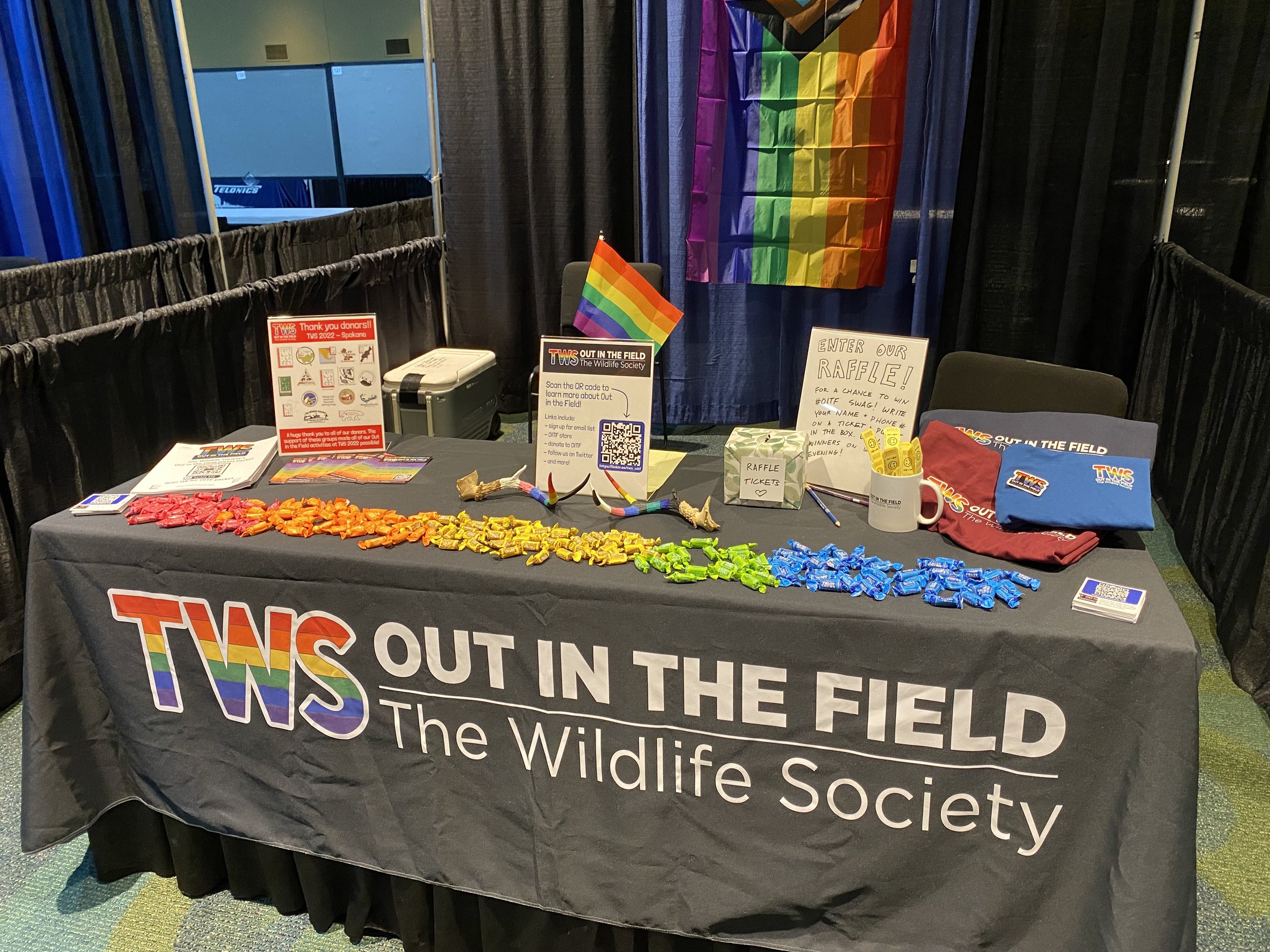A Future of Conservation in All Its Diversity with Dr. Liz Hillard
She’s passionate, humble, and funny; interesting, smart, and creative. Her uniquely calming energy radiates a contagious positivity. As colleagues say, “Liz is everyone’s favorite person!"
Dr. Liz Hillard is the Senior Wildlife Biologist for the Appalachian Region at Wildlands Network. She tackles big questions like, “Where are habitat connectivity pinch points for elk? How can we protect these priority areas?” by using her research background in wildlife spatial location analysis, applying a quantitative approach to conservation.
In addition to rewilding North America through on-the-ground research, she is also changing the future of conservation by promoting diversity as an LGBTQ+ member and advocate. She creates space for every person to be their authentic selves.
Liz lives and works in the southern Appalachian Mountain region of the U.S., where a temperate climate, highly varying precipitation, and elevation changes create conditions that have supported a diversity of plants and animals for millennia.
Unlike large swaths of the Western U.S., most of the East is concentrated with lots of humans and little protected area. These conditions create fragmented wildlife habitat and populations of elk, deer, black bears, coyotes, and bobcats, resulting in the dwindling of many wildlife populations.
“My favorite (physical) thing about elk is their remnant ivory teeth from ancient ancestors that had ivory tusks protruding from their mouths! I live near areas named for elk (Elk Mountain, Elk Hollow) where elk once lived but were extirpated. They are now reduced to small, reintroduced herds east of the Mississippi, but I like to picture what the area looked like in the past.”
Additionally, research projections have shown that animals from the Midwest will move towards the Appalachian Mountains as climate change continues to warm the Earth. As a result, focusing on land conservation to protect habitat and wildlife crossings to facilitate movement is absolutely essential for wildlife in the southern Appalachians.
With tenacious curiosity, deep passion for wildlife, master’s and doctorate degrees in wildlife biology, and years of quantitative research experience, Liz set out to achieve these lofty goals with Wildlands Network. She collects and analyzes the data needed to implement wildlife crossings in the Appalachian’s Pigeon River Gorge to improve wildlife movement and habitat connectivity in this crucial connectivity bottleneck where a busy highway divides Great Smoky Mountains National Park from the Pisgah and Cherokee National Forests to the northeast.
Through monitoring elk with GPS collars, analyzing their movement, and creating digital connectivity models, Liz’s research has identified elk-road-conflict areas that are guiding mitigation on the ground to provide safe passage across roads for elk and a diversity of wildlife.
Liz is the mastermind behind many intricate studies, including the Pigeon River Gorge road-ecology research, elk GPS connectivity research, timber rattlesnake road crossings monitoring, and connectivity in the southern and central Appalachian Mountain regions.
“The individuality of nature often calls for modifications of study designs to account for varying regions, focal species, and local factors. We are constantly learning, keeping up with new technology and scientific literature, and brainstorming with our team of science experts to find the best way to solve our research questions,” says Liz.
Her research has already laid the groundwork for potential wildlife crossings in the Pigeon River Gorge by using hard data to advocate for large structures like wildlife overpasses and underpasses, which currently don’t exist and are much needed in the region.
“Liz is an incredibly effective science communicator who can explain complex science as digestible, interesting concepts.”
In addition to fighting an uphill battle for wildlife, Liz is also forging a new path for all people by bringing the LGBTQ+ community to the forefront of conservation. While wildlife biology historically lacks diverse perspectives, Liz leads by example as a LGBTQ+ member, speaks up for the community, and creates paid opportunities and training for members of underserved communities in wildlife research.
“It’s proven that being able to be your authentic self and feeling supported at work leads to better work outcomes and satisfaction. LGBTQ+ folks are often unsure how authentically they can show up and whether spaces in the field, lab, or office are welcoming and supportive,” Liz notes. ”Leaders making it clear that their group is inclusive and supportive of folks being themselves goes a long way in supporting LGBTQ+ and diversity in general.”
Liz offers this support both within the Wildlands Network community and in her leadership position at Wildlife Society’s Out in the Field Initiative, a community that increases the visibility of LGBTQ+ members and curates support and mentorship for wildlife scientists. Since 2020, Liz has worked with Out in the Field to host socials, luncheons, and booths to build a thriving community.
“There’s a lot of work to be done to have diverse perspectives in conservation work. At Out in the Field, we work with our allies to foster a more inclusive, welcoming culture where diversity of all kinds is clearly embraced,” explains Liz.
At Wildlands Network, we’re proud to work with Liz every day as she shapes the future of conservation for the better. With Liz leading the way, we’re excited to see a future full of life in all its diversity.





